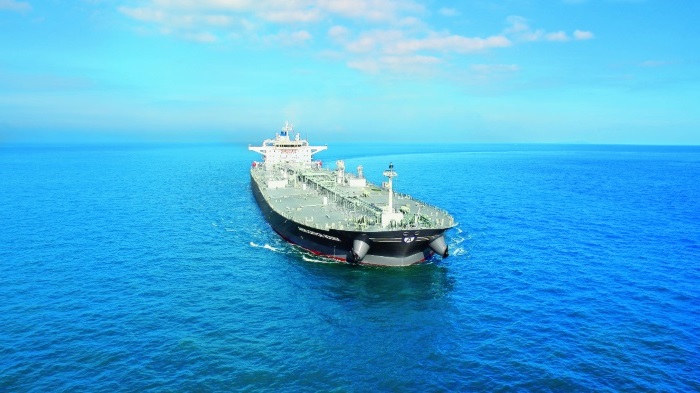The Green Revolution Could Be a Boost for Product Tankers
10.05.2021 Product tankers operating in Europe could receive a welcome increase in demand, as a result of the “Green” revolution underway in the continent. In its latest weekly report, shipbroker Gibson said that “there is no doubt that the green revolution is underway and arguably Europe is its epicentre. The European energy sector has faced headwinds for more than a decade as refiners overseas often held an advantage. Beit more sophisticated refineries, cheaper feedstock costs, or in many cases, both. Covid-19 was just another factor that would further diminish the significance of European refining and ultimately lead to another round of capacity closures. But now increasingly, European energy majors are seeing an opportunity to reorientate their business models to exploit the growing environmental pressure on their businesses and access government subsidies. Central to this is the European Unions’ goal to cut greenhouse gas (GHG) emissions by 55% by 2030 and achieve climate neutrality by 2050. Whilst the strategies to achieve carbon neutrality are varied, most energy majors are investing in biofuels as part of their strategies to achieve their climate goals”.
Product tankers operating in Europe could receive a welcome increase in demand, as a result of the “Green” revolution underway in the continent. In its latest weekly report, shipbroker Gibson said that “there is no doubt that the green revolution is underway and arguably Europe is its epicentre. The European energy sector has faced headwinds for more than a decade as refiners overseas often held an advantage. Beit more sophisticated refineries, cheaper feedstock costs, or in many cases, both. Covid-19 was just another factor that would further diminish the significance of European refining and ultimately lead to another round of capacity closures. But now increasingly, European energy majors are seeing an opportunity to reorientate their business models to exploit the growing environmental pressure on their businesses and access government subsidies. Central to this is the European Unions’ goal to cut greenhouse gas (GHG) emissions by 55% by 2030 and achieve climate neutrality by 2050. Whilst the strategies to achieve carbon neutrality are varied, most energy majors are investing in biofuels as part of their strategies to achieve their climate goals”.

According to Gibson, “among these, Total plans to convert its landlocked Grandpuits refinery into a 400,000 tonnes/year biofuel plant producing renewable diesel, sustainable aviation fuel (SAF) and renewable naphtha to supply local markets. In Italy, ENI is considering expanding its biofuel production, with potential expansions at existing facilities, as well as a potential conversion of its Livorno refinery by 2024. ENI has set out a goal to produce up to 5 million tonnes/year of biofuel by 2050 which will require continued investment and expansion. Combined, Total and ENI’s plans will likely see up to 177,000 b/d of crude imports displaced by a much smaller volume of bio feedstocks”.
The shipbroker added that “also in Italy, Saras is considering more than doubling hydrotreated vegetable oil (HVO) biodiesel output to 250,000 – 300,000 tonnes/year at its Sardinia plant. This will require the firm to source more feedstock such as palm and vegetable oils. In Spain, Repsol plans to build a biofuels plant in Spain by 2023, capable of producing 250,000 tonnes/year of biofuels. The facility will use recycled materials as its feedstock. In Germany, Shell is investing in the Rheinland refinery to use green electricity to produce synthetic jet fuel and naphtha. As with most green investments, the scale will start small with just 100,000 tonnes/year of production by 2025. In Finland Neste plans to cease refining at its 58,000 b/d Naantali plant and increase output of SAF across its global refining assets. The company has also selected Rotterdam as the site for a biofuel refinery and plans to produce 500,000 tonnes of SAF there by late 2023”.

Gibson also noted that “many other projects are taking place across the region, and indeed across the globe. These projects will undoubtedly influence seaborne crude and product flows, as well as boosting seaborne flows of biofuel feedstocks such as edible oils, tallow and used cooking oils to name a few. In the short term, the biggest impact will be felt in terms of seaborne crude trade into European refineries. Across the region, combined closures/conversion projects could amount to a loss of up to 600,000 b/d of crude oil demand, meaning that oil imports will never return to pre-pandemic levels. However, for refined product imports into Europe, the near-term picture is brighter. As fuel demand recovers from Covid-19, the closure of refining capacity, and slow build up in biofuel production will likely increase the product deficit in Europe. This will support imports of diesel, jet fuel and other products from overseas suppliers to plug the gap between capacity being taken offline and biofuel production being ramped up”, the shipbroker concluded.
Source:Hellenic Shipping News
